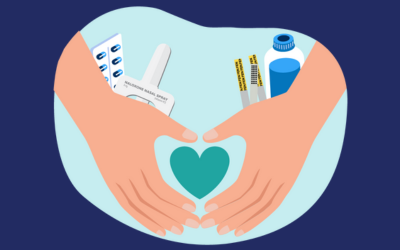
Collaborations to Prevent Overdose
Year: 2025 | Competency/Strategic Skill: Community and Partner Engagement; Public Health Fundamentals | Priority Topic: Opioid Abuse | Setting: Online | Format: On-Demand | Sponsor: Emory University/Central Office; Injury Prevention Research Center at Emory (IPRCE)
Overview:
This is a 90-minute recording of a live webinar on August 26, 2025.
This webinar will bring together individuals working to prevent overdoses in their communities through collaborations with prevention groups, harm reduction organizations, and local public health authority. The presenter will provide case examples of collaborations in the field working to improve health outcomes for individuals who use drugs. This webinar will review best practices related to responding and reversing an overdose and overdose education and naloxone distribution.
Shelby Meaders, MPH, is the Director of Expansion at IDEA Exchange Miami, Florida’s first sanctioned syringe services program at the University of Miami Miller School of Medicine. Shelby provides technical assistance to all sanctioned and future syringe services programs. Previously, Shelby was the Executive Director of Florida Harm Reduction Collective and a Project Director and Overdose Prevention Coordinator at the Florida Department of Children and Families in the Office of Substance Abuse and Mental Health where she managed a statewide naloxone distribution program. Shelby received her Bachelor of Science followed by a Master of Public Health with a specialization in Health Policy and Management. Shelby is the current Board Secretary for Creative Clay in Pinellas County and Board Treasurer for the Florida Public Health Association. Shelby resides in St. Petersburg, Florida.
Learning Objectives: By the end of this webinar, participants will be able to:
- Define harm reduction.
- Recognize examples of harm reduction practices.
- Recall best practices to respond to and reverse an opioid overdose.
- Identify ways to implement evidence-based initiatives to prevent overdoses in their communities.
CERTIFICATE: The course contains two modules: a module to access the webinar and an evaluation module. After accessing these modules, learners will earn a certificate of completion.
This project is supported by the Health Resources and Services Administration (HRSA) of the U.S. Department of Health and Human Services (HHS) under grant number UB6HP31680, Public Health Training Centers for $4,348,992. This information or content and conclusions are those of the author and should not be construed as the official position or policy of, nor should any endorsements be inferred by HRSA, HHS or the U.S. Government.
